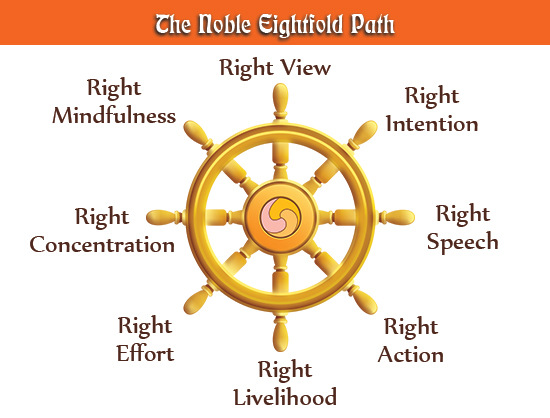Core Beliefs in Buddhism
Buddhism is a religion practiced by an estimated 488 million in the world, representing 9% to 10% of the world’s total population. Buddhism as a philosophy exists across many cultures, time periods, and with varying teachings and practices. Despite the differences among Buddhist traditions, they share a common set of core beliefs.
In Buddhism, the primary purpose of life is to end suffering. The Buddha teachings emphasize that humans suffer because we continually strive for things that do not give lasting happiness. Buddhism teaches the importance of recognizing the impermanence of all things and freeing oneself from attachment to them. This will lessen suffering and eventually end the cycle of rebirth.
Reincarnation
One of the core beliefs in Buddhism is often referred to as reincarnation. Reincarnation is the concept that people are reborn after dying. The concepts of rebirth and reincarnation are different. In reincarnation, the individual may recur repeatedly. In rebirth, a person does not necessarily return to Earth as the same entity ever again.
Karma
Buddhism teaches the belief in karma. Karma means that all actions have consequences in an interconnected world. The consequences of acts undertaken in this and earlier lifetimes will be felt in a next one during reincarnation. It is a Buddhist aim to educate oneself and meditate in order to escape from this cycle of rebirth and to enter Nirvana.

Mediation
Another core belief in all Buddhist groups is the importance of meditation. Meditation is the key. Without calming our mind, and examining our mind’s nature and its beliefs, we can never reach enlightenment.
The teachings of Buddha are expressed most briefly in the Four Noble Truths and the Noble Eightfold Path and the Five Precepts, which together form the foundation of belief for all branches of Buddhism.
The Four Noble Truths
- All of life is marked by suffering.
- Suffering is caused by desire and attachment.
- Suffering can be stopped.
- The way to end suffering is to follow the Noble Eightfold Path.
The Noble Eightfold Path
According to the fourth Noble Truth, one can permanently escape suffering by following the Noble Eightfold Path.
-
Right View/Understanding
See things as they truly are without delusions or distortions for all things change. Develop wisdom by knowing how things work, knowing oneself and others.
-
Right Thinking
Decide to set a life on the correct path. Wholehearted resolution and dedication to overcoming the dislocation of self-centered craving through the development of loving-kindness, empathy, and compassion.
-
Right Speech
Abstinence from lies and deceptions, backbiting, idle babble and abusive speech. Cultivate honesty and truthfulness; practice speech that is kind and benevolent. Let your words reflect your desire to help, not harm others.
-
Right Conduct
Practice self-less conduct that reflects the highest state of the life you want to live. Express conduct that is peaceful, honest and pure showing compassion for all beings.
-
Right Livelihood
Earn a living that does not harm living things. Avoidance of work that causes suffering to others or that makes a decent, virtuous life impossible. Do not engage in any occupation that opposes or distracts one from the path. Love and serve our world through your work.
-
Right Effort
Seek to make the balance between the exertion of following the spiritual path and a moderate life that is not over-zealous. Work to develop more wholesome mind states, while gently striving to go deeper and live more fully.
-
Right Mindfulness
Become intensely aware of all the states in the body, feeling, and mind. Through constant vigilance in thought, speech and action seek to rid the mind of self-centered thoughts that separate and replace them with those that bind all beings together. Be aware of your thoughts, emotions, body, and world as they exist in the present moment. Your thoughts create your reality.
-
Right Concentration
Deep meditation to lead to a higher state of consciousness (enlightenment). Through the application of meditation and mental discipline seek to extinguish the last flame of grasping consciousness and develop an emptiness that has room to embrace and love all things.

The Five Precepts
The Five Precepts are basic ethical guidelines for the followers of Buddhism. They are undertaken voluntarily, rather than as commandments from a god.
- I undertake the precept to refrain from destroying living creatures.
- I undertake the precept to refrain from taking that which is not given.
- I undertake the precept to refrain from sexual misconduct.
- I undertake the precept to refrain from incorrect speech.
- I undertake the precept to refrain from intoxicants.

